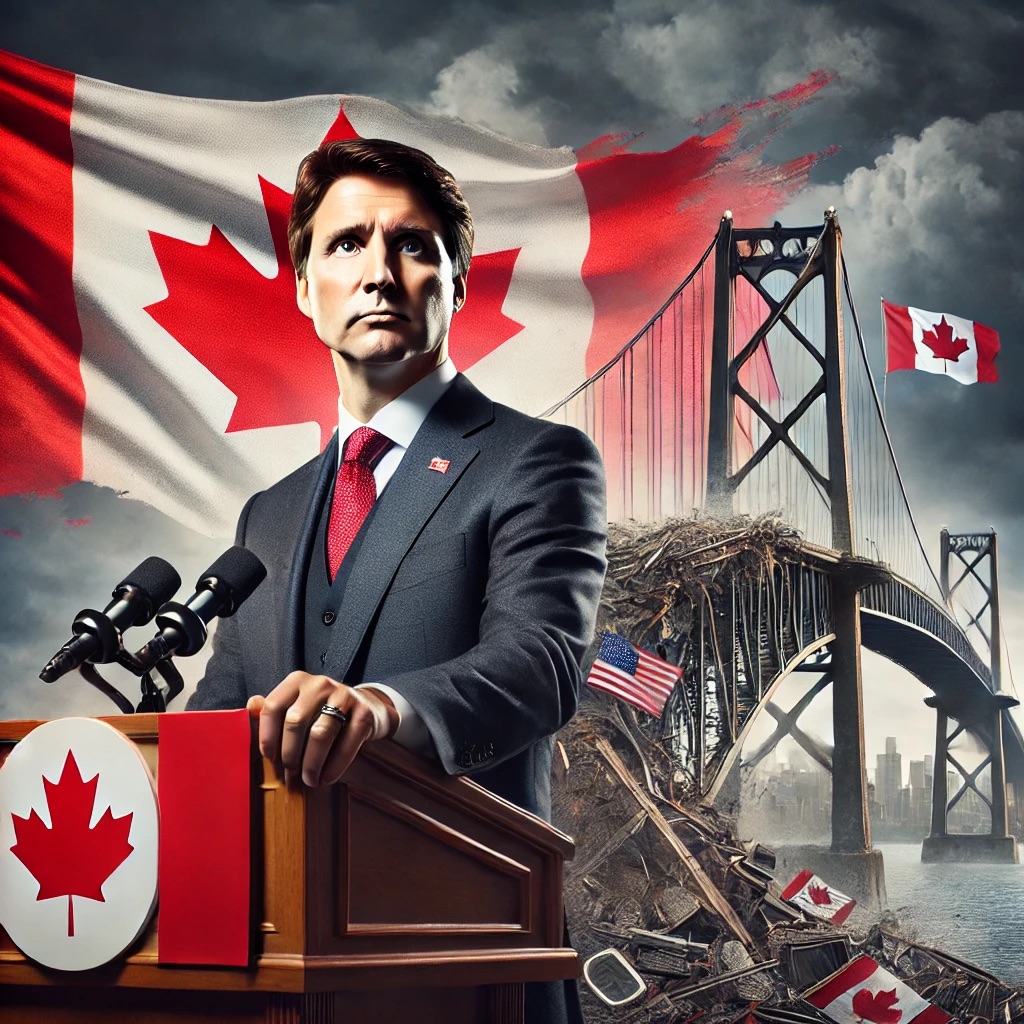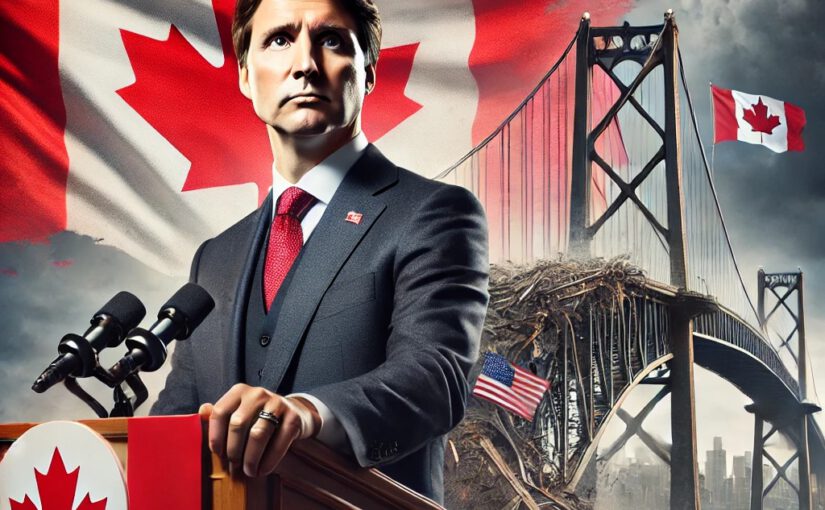
By

When One Door Closes, Many New Doors Open! Bye Bye USA 2.0!
Canada Reorients: Farewell to the USA, New Alliances, New Opportunities
Canada is undergoing a historic shift in its foreign and economic policy. Prime Minister Mark Carney announced in a keynote speech in Ottawa a realignment away from the decades-long close partnership with the USA.

USA 2.0 Gets Its Own Fence, But It Also Isolates Itself into a Prison
“The United States is no longer a reliable partner,” declared Carney. “The old relationship we had with the United States, based on an ever-deeper integration of our economies and close security and military cooperation, is over.”
The trigger for this political break is the new tariffs on car imports announced by U.S. President Donald Trump. For Carney, this is just the latest evidence of an unpredictable U.S. policy that undermines Canada’s interests. “I reject all attempts to weaken, wear down, or break Canada so that America can own us,” said Carney. Trump had previously referred to Canada multiple times as the “51st state” — remarks that were perceived as provocative in Canada.
Carney announced that Canada would respond to the U.S. measures with targeted counter-tariffs — with maximum impact on the United States and minimal burden on its own population. More importantly, however, is the strategic realignment of the country: “In the coming weeks, months, and years, we must fundamentally reshape our economy. We must dramatically reduce our dependence on the USA.”
Canada’s Economic Future: New Partners for Trade and Innovation

As part of this reorientation, Canada seeks to diversify its economic relationships. The goal is to open up new export and import markets that are economically stable, politically predictable, and technologically future-oriented.
- Europe: Canada already has a free trade agreement with the EU (CETA), which can serve as a foundation for more intensive cooperation. Particularly attractive are partnerships in the fields of mechanical engineering, renewable energies, medical technology, and digitalization.
- Asia-Pacific Region: Countries like Japan, South Korea, Australia, and Vietnam offer great potential for mutual trade. Canada could strengthen its role as a supplier of raw materials, energy, and wood, while simultaneously diversifying high-tech imports from Asia.
- Latin America: With countries like Brazil, Chile, and Mexico, Canada could cooperate in the areas of agriculture, energy, and infrastructure.
- Africa: Exports in education, infrastructure projects, and development cooperation offer long-term potential — both economically and geopolitically.
- India: As the world’s largest democracy and an emerging economic power, India is a strategically significant partner for Canada — especially in the fields of pharmaceuticals, IT, education, and agricultural technology.
Canada as a New Travel Destination: An Open-Minded Alternative to the USA

Not only economically, but also in international tourism, Canada could benefit from the political distancing from the USA. Many people worldwide view the United States increasingly critically — be it due to political polarization, stricter entry regulations, or social tensions. Canada, on the other hand, presents itself as a safe, stable, and open-minded alternative.
- European Countries (e.g., Germany, France, United Kingdom): Nature, freedom, safety, and multiculturalism make Canada a dream destination for European tourists.
- East Asia (Japan, South Korea): Canada’s clear visa regulations, high safety standards, and cultural openness make it attractive for travelers from the Far East — especially compared to the USA.
- Australia & New Zealand: For many Australians and New Zealanders, Canada is a long-haul destination with similar values and lifestyles.
- India: Due to cultural connections, growing communities, and the education sector, Canada is becoming increasingly attractive to Indian tourists.
Conclusion: A New Chapter for Canada
Mark Carney’s clear words mark a turning point in Canadian foreign policy. The break with the USA does not mean isolation but a reorientation — towards more independence, global networking, and strategic diversity. Whether in trade, tourism, or geopolitical positioning: Canada no longer sees itself as a junior partner of the USA but as an independent voice in a multipolar world. The coming years will show whether the country can successfully pursue this ambitious path — the determination is certainly there.
.
#Canada #MarkCarney #USA2_0 #Trump #TradePolicy #CETA #Tourism #ForeignPolicy #Tariffs #EconomicShift #AsiaPacific #India #Europe #Diversification #Geopolitics


